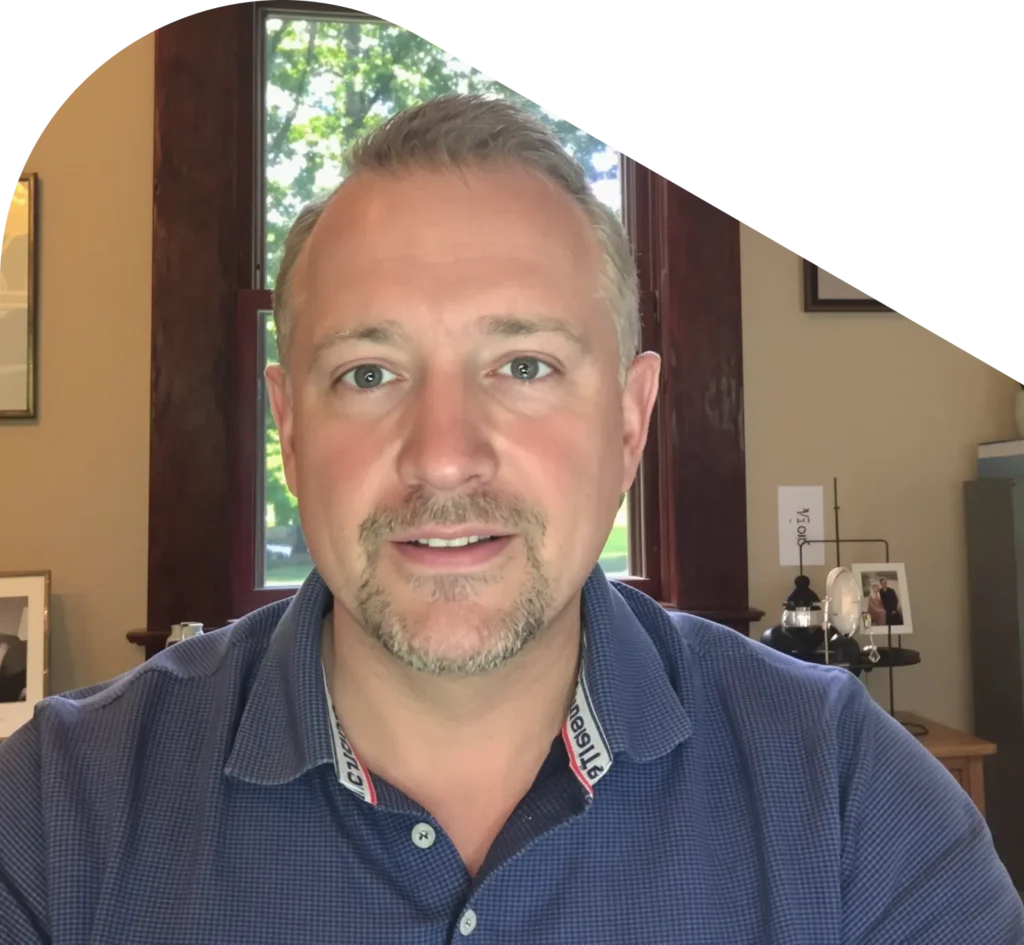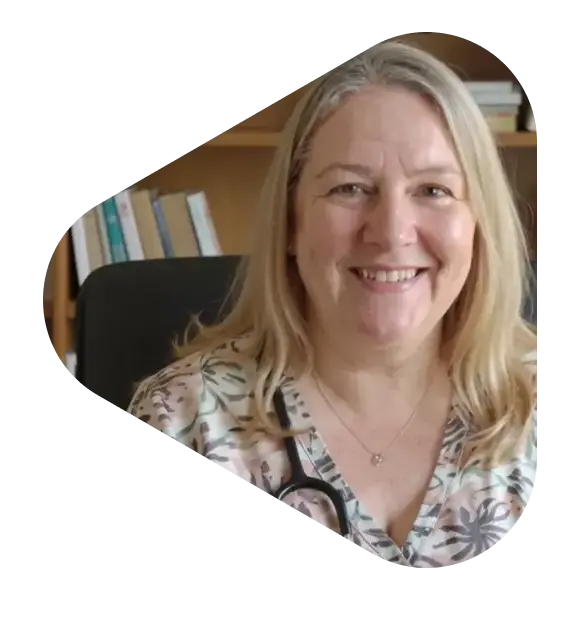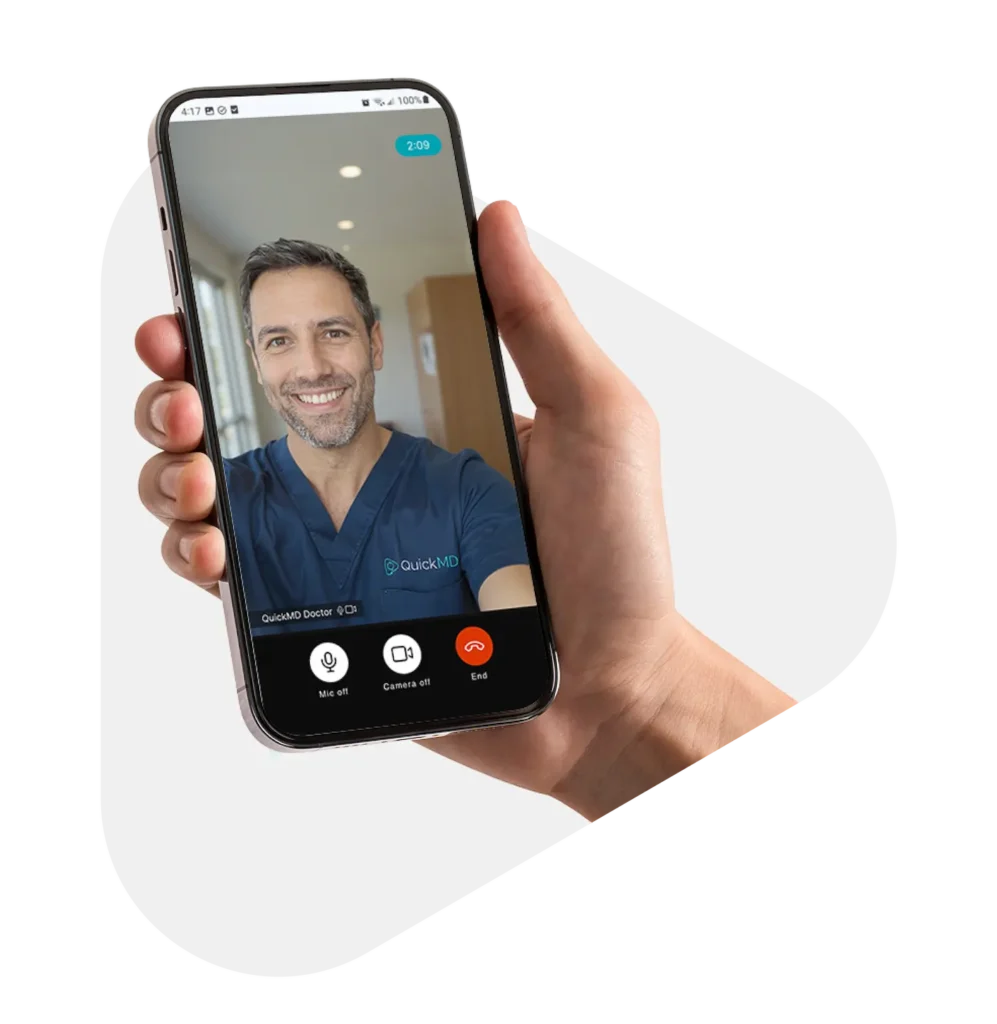Medication-Assisted Treatment in Ohio
QuickMD offers private, judgment-free addiction treatment online in Ohio for substance use disorders, including treatment with Suboxone®.
Book now

Manage opioid cravings and withdrawal with Suboxone® treatment
Learn about treatment
Why choose QuickMD for addiction treatment in Ohio?
Getting care at QuickMD is simple, secure, and accessible. We eliminate the hassle of waiting rooms and insurance. Here’s why thousands of patients trust us for quick, compassionate care:
Same-day
appointments
No insurance
required
Licensed &
certified providers
100% online
appointments
Over 100K+
patients served
Nomemberships
Start treatment with Suboxone® today
At QuickMD, getting your Suboxone® prescription is simple. Schedule a quick phone or video appointment with a licensed provider and we’ll send your prescription directly to your pharmacy.
Why virtual addiction treatment matters in Ohio
Addiction affects individuals and families across Ohio, from cities like Cleveland to rural communities where access to care can be limited.
In 2022, Ohio lost 5,144 lives to unintentional drug overdoses, most involving fentanyl. The crisis is statewide, but access to care isn’t.
More than half of Ohio’s counties are considered Health Professional Shortage Areas, meaning there simply aren’t enough doctors for the people who need them. That leaves many facing long travel times, weeks of waiting, or no care at all. And even when treatment is available, stigma can make it hard to walk through the door.
That’s where virtual care changes everything.
With QuickMD, you can talk to a licensed provider from your phone or laptop, often the same day. No transportation needed. No explaining yourself in a crowded waiting room. Just calm, private care that fits your life. We’re here to help you get the support you need to feel better and start Medication-Assisted Treatment in Ohio, wherever you are, whenever you’re ready.
How access to addiction treatment is improving in Ohio
A new initiative under House Bill 300 is launching a two-year pilot to fund remote methadone treatment through Opioid Treatment Programs (OTPs). That means fewer trips to clinics and more flexibility for those balancing work, family, and recovery.
Crisis support is also becoming more available. The Ohio Department of Mental Health and Addiction Services (OhioMHAS) has prioritized the expansion of Mobile Response and Stabilization Services (MRSS), which now operate in 47 counties. These mobile units respond directly to crises, bringing support to doorsteps and helping connect people with longer-term care.
In November 2024, Governor DeWine announced $100 million in federal grants to support local programs focused on prevention, harm reduction, and recovery.
At the same time, the OneOhio Recovery Foundation has begun distributing millions of dollars from opioid settlements to community and government organizations across the state. In its 2024 grant cycle, up to $51 million supported evidence-based prevention, treatment, and recovery support services.
Regulations are also evolving. As of January 31, 2025, updated state regulations allow for mobile medication units, more take-home flexibility, and a broader scope of practice for providers. These changes mean care can meet more people where they are physically and emotionally.
Coverage through Medicaid continues to be a major support. As of March 2025, nearly 770,000 Ohioans are covered through Medicaid expansion, with approximately 40% having a primary mental health or substance use disorder diagnosis. This coverage has enabled many individuals to receive necessary treatment services that were previously inaccessible.
Moreover, local health departments have implemented data-driven strategies to address addiction. For instance, the Licking County Health Department introduced an overdose mapping system in 2020 to track fatal and nonfatal overdose cases, allowing the timely distribution of naloxone and other interventions.
Across Ohio, momentum is building. Treatment is becoming more available, more responsive, and more aligned with the realities people face every day.
How QuickMD supports access to MAT in Ohio
We help people in Ohio start or continue Medication-Assisted Treatment (MAT) for opioid use disorder through online visits. Patients can meet with a licensed provider from home any day of the week.
You don’t have to wait weeks for an appointment or explain your story to multiple providers. You get confidential, compassionate care from professionals who understand what you’re going through.
By offering care online, we help reduce some of the common barriers to treatment, making it easier for more people across Ohio to get support and take control of their health.
Tips for managing addiction treatment
1. Lean on support
You don’t have to do this alone. Whether it’s a trusted friend, a family member, a recovery sponsor, or a support group, staying connected to people who care can help you feel stronger and more grounded. If you’re not sure who to talk to, your QuickMD provider can help you find support that feels right for you.
2. Know your triggers
Understanding what puts your recovery at risk helps you protect it. Triggers might be situations, people, emotions, or even certain places. Being aware of them and making a plan for how to cope can help you stay in control when those moments arise. You don’t have to manage this on your own. Your provider can guide you through identifying triggers and building strategies that work for your life.
3. Celebrate progress
Every win matters. Whether it’s making it through a tough day without using, showing up for a therapy session, or simply choosing to keep going, you’re making progress. Take time to acknowledge those steps, even the small ones.
4. Be kind to yourself
There may be setbacks. That’s part of the process, not a failure. Recovery is hard work. What matters most is your willingness to keep showing up for yourself. Talk to yourself with the same compassion you’d offer a loved one in your shoes. You deserve that kindness, too.
We also offer these services in Ohio
At QuickMD, we’re committed to bringing convenient, affordable, and compassionate virtual care to patients across Ohio. In addition to addiction treatment, we proudly offer:
- Medical Weight Loss
- Urgent Care Services
- Virtual Counseling Sessions

Medical Weight Loss
Our online weight loss treatment helps you explore options like Ozempic® and Mounjaro® with licensed providers, offering support tailored to your health goals.

Urgent Care Services
Get quick, compassionate care for common illnesses online, 7 days a week. Anytime, anywhere.

Virtual Counseling Sessions
Talk to licensed providers to support your mental well-being on your terms, when and where you need it.

Medical Weight Loss
Our online weight loss treatment helps you explore options like Ozempic® and Mounjaro® with licensed providers, offering support tailored to your health goals.

Urgent Care Services
Get quick, compassionate care for common illnesses online, 7 days a week. Anytime, anywhere.

Virtual Counseling Sessions
Get quick, compassionate care for common illnesses online, 7 days a week. Anytime, anywhere.
Start treatment with Suboxone® today
At QuickMD, getting your Suboxone® prescription is simple. Schedule a quick phone or video appointment with a licensed provider and we’ll send your prescription directly to your pharmacy.
Frequently asked questions about MAT in Ohio
Is addiction a disability in Ohio?
Yes. Under both federal and state law, substance use disorders can be considered a disability, especially if they substantially limit one or more major life activities. This means you may have legal protections at work or when seeking housing or services. However, those protections often depend on whether you’re actively in recovery or treatment.
What are Schedule I drugs in Ohio?
Schedule I substances in Ohio include drugs like heroin, LSD, and marijuana, classified as having a high potential for misuse and no accepted medical use. However, recreational marijuana was legalized in 2023, but it remains Schedule I under Ohio law.
What is the opioid law in Ohio?
Ohio limits opioid prescriptions for acute pain to 7 days for adults and 5 days for minors unless documented otherwise. Pharmacists may not dispense opioids more than 14 days after the prescription date unless specific conditions are met.
Providers are also required to consult the Ohio Automated Rx Reporting System (OARRS) before issuing prescriptions for opioids, ensuring that patients are not receiving overlapping prescriptions from multiple providers. This measure helps monitor and control the distribution of controlled substances within the state.


